ECR Viromics Webinar Series
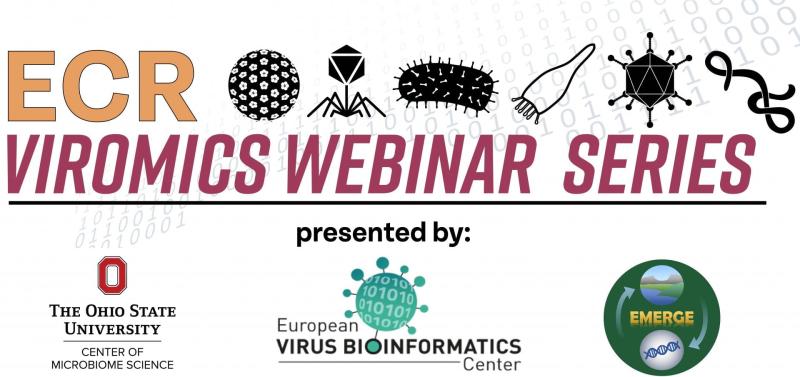
The ECR Viromics Webinar Series is a fully virtual forum to enable early career researchers to showcase their research online to the community.
The talks will focus on the study of viruses in complex communities, including natural and built environment ecosystems. We invite you to nominate speakers below.
Key Details
When:
- Once a month
- Every second Wednesday
- 7 am PST - 10 am EST; 4 pm CET
How to attend: Upon registration, you will receive a Zoom link.
Virtual Event Registration
Nominate: We invite you to nominate speakers for the webinar series by completing the speaker nomination form below
Speaker Nomination Form
Upcoming webinars | Past webinars
The ECR Viromics Webinar Series is a collaborative effort between:
the European Virus Bioinformatics Center
the NSF EMERGE Biology Integration Institute
the Center of Microbiome Science.
Next ECR Viromics Webinar
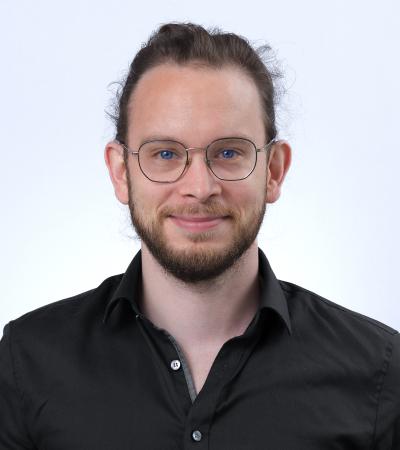
Wednesday, February 11th, 2026 | Jonas Fuchs - University Hospital Freiburg, Clinical Virus Genomics, Germany
Talk | “How viral evolution is shaped during long-term infections of immune-compromised hosts”.
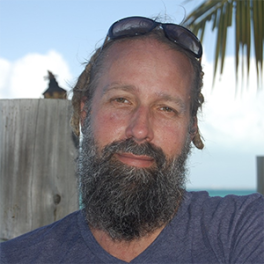
Wednesday, January 14th, 2026 | Dr. Kay Bidle, Professor, Department of Marine and Coastal Sciences, Rutgers University, New Jersey
Talk | Ocean physics, phytoplankton-virus interactions and the carbon cycle: implications for aggregation and export
Abstract
Viruses are pervasive, persistent and powerful. They are by far the most abundant and diverse entities on our planet and exert an integral fundamental grip on the cell fate of diverse biological organisms. This includes phytoplankton—floating unicellular photoautotrophs—who drift with ocean physics, routinely form blooms the size of continents, and are responsible for the oxygenation of our planet. Oceanic ‘pandemics’ of phytoplankton happen on weekly time scales, causing phytoplankton populations to wax and wane over predictable cycles. These widespread infections take place in the microscale but manifest on mesoscales. They exert a fundamental control on Earth’s carbon cycle, dictating the fate of carbon and whether it is transported to the deep ocean (by influencing the formation of sinking particles) and sequestered for hundreds to thousands of years; or whether it is retained in the surface ocean (by lysing cells) and available for exchange with the atmosphere as CO2. Yet the impact of viruses on the spatial and temporal variability in productivity and export efficiency remain unexplained.
Seasonal shifts in phytoplankton accumulation and loss largely follow changes in mixed layer depth. Here, I’ll discuss the impact of ocean physics and mixed layer depth physiological state of phytoplankton populations associated with distinct bloom phases and mixing regimes in the North Atlantic, with particular emphasis on host-virus interactions and biogeochemical outcomes. Stratification and deep mixing altered community physiology and viral production, effectively shaping accumulation rates. Communities in relatively deep, early-spring mixed layers are characterized by low levels of stress and high accumulation rates, while those in the recently shallowed mixed layers in late-spring have high levels of oxidative stress. Prolonged stratification into early autumn manifests in negative accumulation rates, along with pronounced signatures of compromised membranes, death-related protease activity, virus production, nutrient drawdown, and lipid markers indicative of nutrient stress. Characterization of phytoplankton community responses with metatranscriptomics provided evidence for active virus infection upon mixed layer shallowing (from 233 to 5m) over the course of two days, whereby the ratio of virus to host transcripts increased in the Bacillariophyta (diatom) phylum upon mixed layer shallowing; this was relaxed for the Chlorophyta (green algae) phylum. Positive phytoplankton accumulation renewed during mixed layer deepening with transition into winter, concomitant with enhanced nutrient supply and lessened viral pressure. Our findings highlight shared and unique transcriptional response strategies within phytoplankton communities acclimating to the dynamic light environment associated with transient deep mixing and shallowing events during the annual North Atlantic bloom.
Bio
Kay Bidle is a Professor in the Department of Marine and Coastal Sciences within the School of Environmental and Biological Sciences at Rutgers University. He is a microbial oceanographer broadly defined. His research program focuses on microbial ecophysiology (especially eukaryotic phytoplankton), host-virus interactions/arms races, virology, molecular evolution and ecology, carbon flux biogeochemistry, and ecosystem processes. He has placed particular emphasis on host-virus interactions and how viruses impact carbon cycling, export and carbon sequestration. He currently leads an NSF-funded Growing Convergence Research—one of NSF’s Top10 ideas—project blending biology, chemistry, physics, engineering, applied math and modeling to assess how viruses impact Earth’s carbon cycle and how prevailing ocean conditions exert fundamental controls on the predictive outcomes.
Kay got his PhD from the Scripps Institution of Oceanography under Farooq Azam, one of the pivotal minds in marine microbial ecology. He joined the faculty at Rutgers University in 2005. Over the course of his career, Kay has won several prestigious awards. These include the Raymond A. Lindeman Award from the Association of Limnology and Oceanography and the Edward A. Frieman Award from Scripps for excellence in research. He was selected as a Marine Microbiology Initiative Investigator by the Gordon & Betty Moore Foundation—one of 16 international scientists to receive this award--- and a Kavli Fellow from the US National Academy of Sciences. At Rutgers, Kay has been selected for a Board of Trustees Research Fellow for Scholarly Excellence, a Faculty Scholar-Teacher Award and a Research Excellence Award.
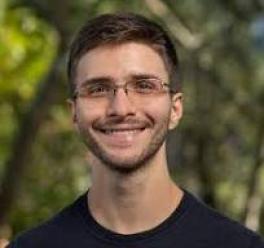
Wednesday, December 10, 2025 | Dr. Antônio Pedro Camargo, University of São Paulo (Brazil)
Talk | Drawing from phage diversity to uncover genomic factors shaping host interaction
Bio: Antônio Camargo is an assistant professor at the University of São Paulo (Brazil), where his primary research interest lies in the diversity and evolution of mobile genetic elements across Earth's microbiomes and their evolutionary dynamics with host organisms. His current research focuses on developing computational methods that leverage large-scale sequencing data to generate insights into plasmid and phage biology.
References:
- Camargo, Antonio Pedro, et al. "Identification of mobile genetic elements with geNomad." Nature Biotechnology 42.8 (2024): 1303-1312. https://doi.org/10.1038/s41587-023-01953-y
- Camargo, Antonio Pedro, et al. "IMG/VR v4: an expanded database of uncultivated virus genomes within a framework of extensive functional, taxonomic, and ecological metadata." Nucleic Acids Research 51.D1 (2023): D733-D743. https://doi.org/10.1093/nar/gkac1037
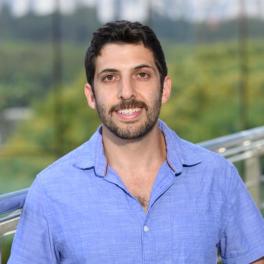
Wednesday, November 12, 2025 | Amir Fromm, Weizmann Institute of Science
Talk | Untangle the complexity of the virosphere using single-cell RNA-sequencing
Bio: Amir Fromm is a PhD student in the lab of Assaf Vardi at the Department of Plant and Environmental Sciences, Weizmann Institute of Science.
His research explores host-virus interactions in the marine environment, with a particular focus on the ecological roles of giant viruses.
Amir developed a single-cell RNA sequencing-based method to pair viruses with their hosts and is now expanding this approach to encompass additional viral lineages and environments.
His broader goal is to unravel the complex relationships shaping microbial ecosystems.
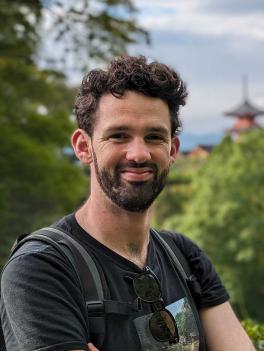
Wednesday, October 8, 2025 | Dr. Kieran Lamb, University of Glasgow (UK)
Talk | Characterising novel viral proteins using protein language models (PLMs)
Bio: Kieran Lamb is a postdoctoral researcher at the MRC-University of Glasgow Centre for Virus Research (CVR) in Glasgow. He began his career with an undergraduate degree in Computer Science at the University of Glasgow followed by a masters degree in Bioinformatics. His PhD at the CVR began in the early days of the COVID-19 pandemic. During this time, he focused on identifying and tracking the mutational signatures that were driving SARS-CoV-2s evolution using machine learning methods. More recently, he has worked on understanding how protein language models can be used to supplement our understanding of viral proteins, particularly when there is a lack of sequence information.
Publication:
Kieran D. Lamb, Joseph Hughes, Spyros Lytras, Francesca Young, Orges Koci, James Herzig, Simon C Lovell, Joe Grove, Ke Yuan, David L. Robertson (2024) From a single sequence to evolutionary trajectories: protein language models capture the evolutionary potential of SARS-CoV-2 protein sequences. bioRxiv 2024.07.05.602129.
https://doi.org/10.1101/2024.07.05.602129
https://observablehq.com/@cvr-bioinfo/from-a-single-sequence-nature-communications
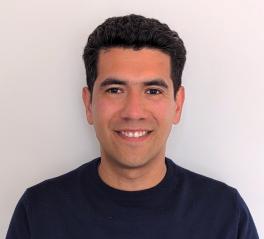
Wednesday, September 10, 2025 |Luis Bolaños, postdoctoral researcher in Ben Temperton’s group at the University of Exeter
Talk | Chronotyping the Ocean Virome: Fine-Scale Temporal Clustering Reveals Viral Ecological and Evolutionary Patterns
ChronoClustR webpage: https://github.com/lbolanos32/WEC_Chronotypes_2024
Bio: Luis Bolaños is a Postdoctoral Research Fellow in the Temperton Laboratory at the University of Exeter. With over a decade of experience in marine microbiology, his research explores the ecology and evolution of the surface ocean microbiome and its responses to climate change. He is passionate about data integration and developing novel bioinformatic pipelines to analyse high-resolution -omics and oceanographic datasets aiming to improve our understanding of microbial ecosystem responses to environmental change and enhance forecasting and modelling. Recently, Luis developed ChronoClustR, an unsupervised machine learning tool that clusters viral sequences based on temporal abundance patterns to identify ecologically meaningful viral groups known as chonotypes. He earned his PhD in Biomedical Sciences and BSc in Genomic Sciences from the National Autonomous University of Mexico.
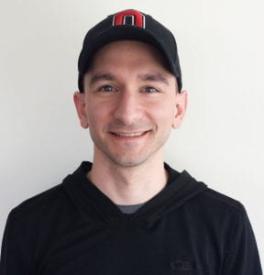
Wednesday, June 11, 2025 |Dr. Ben Bolduc, Research Scientist, Sullivan and Rich Labs, Ohio State University
Talk | vConTACT3: Virus Classification of Old and New
Bio: Benjamin Bolduc is a Staff Research Scientist in the Sullivan and Rich Labs at The Ohio State University with over a decade of experience in biochemistry. His research delves into microbial ecology, virology, and carbon cycling, focusing on the roles of viruses in marine and soil ecosystems and their impact on global biogeochemical cycles. Ben has also developed tools for viral genome annotation and studied the human gut phageome. He earned his Ph.D. in Biochemistry from Montana State University-Bozeman and holds a B.S. in Biochemistry and a B.A. in Religion/Religious Studies from Stonehill College.
References:
Documentation website: https://vcontact3.readthedocs.io/
Code: https://bitbucket.org/MAVERICLab/vcontact3/
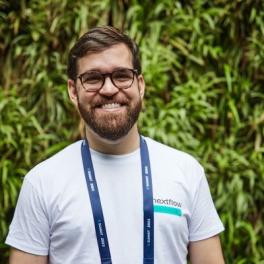
Wednesday, April 9, 2025 |Dr. Marcel Ribeiro-Dantas, Senior Developer Advocate, Seqera
Talk | Nextflow pipelines: Connecting Data to Discoveries
Bio:
Dr. Ribeiro-Dantas is a Senior Developer Advocate at Seqera, the driving force behind Nextflow, MultiQC, and the Seqera Platform—the modern biotech stack. He holds a PhD in Bioinformatics from Sorbonne Université and is a Professor in the Biotechnology Graduate Program at Universidade Potiguar in Brazil.
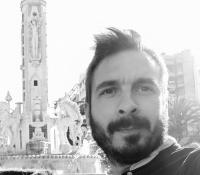
Wednesday, March 12, 2025 | Dr. Manuel Martinez-Garcia
Associate Professor of Microbiology at the University of Alicante (Profesor Titular de Universidad), Spain
Talk | Unveiling the Hidden World of a Ubiquitous Marine Virus
BIO: Manuel Martinez-Garcia is Full Professor of Microbiology at the University of Alicante (Spain). He was graduated with full marks and honors in Biology, and in 2005 he received a PhD in Molecular Microbial Ecology. In Europe, MMG conducted three postdoctoral stays at the Max Planck Institute for Marine Microbiology (Bremen), Ludwig-Maximilians University (Munich), and the Laboratory of Photosynthesis at the Academy of Sciences of the Czech Republic. During 2009-2011, he moved to USA, where as a Postdoctoral Researcher at the Single Cell Genomics Center (Bigelow Laboratory Maine, USA), he was developing cutting-edge techniques of Single Cell Genomics combined with Metagenomics to study the metabolic capabilities of uncultured microbes.
Nowadays, in our lab, we are using different omic approaches, such as metagenomics or single cell- and -virus genomics, to study the function of microbes and viruses, with special interest on how the interaction of viruses with their hosts shape the evolution, diversity, and structure of microbial communities in different habitats from past to present in a context of a global change. MMG is funded by National and International Agencies.
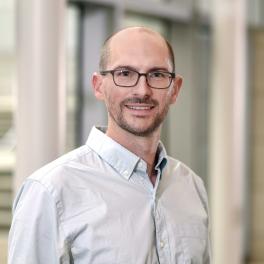
Mike Tisza was born and raised in Chicago, IL, before majoring in biology and English literature at Augustana College. Mike did his PhD at Johns Hopkins University, but he fell in love with microbial genomics studying viromes in Chris Buck’s lab at the National Cancer Institute as part of his graduate research. He developed a deeper interest in the relationship between phage and bacteria during his post-doctoral research at the NIAID and Baylor College of Medicine’s metagenomics center. More recently, Mike has led efforts to sequence and understand the virome of municipal wastewater. As of late 2024, Mike has started his own research group at Baylor College of Medicine.
February 12, 2025 | Mike Tisza
Assistant Professor, Baylor College of Medicine, Texas, USA
Talk | Wastewater virome sequencing uncovers pathogen transmission and evolution
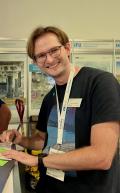
Louis is an evolutionary biologist interested in studying the interaction between evolutionary and epidemiological dynamics. His research focuses on using phylodynamic models to investigate how patterns of spread affect the observed genetic diversity in pathogen genomic sequences. Since 2021 he is the lab manager of the Computational Evolution group in the Department of Biosystems Science and Engineering at ETH Zürich, led by Prof. Tanja Stadler. Previously he obtained a PhD from ETH Zürich and was a postdoctoral researcher at Oxford University, first in pathogen phylodynamics, and then as a fellow in the Oxford Martin school programme for pandemic genomics. During the COVID-19 pandemic he was a contributing member of the COVID-19 Genomics UK consortium, the Pango network, the Swiss National COVID-19 Science Taskforce and the Swiss SARS-Cov-2 Sequencing consortium.
August 14th, 2024 |Dr. Louis Du Plessis
Staff of Professorship for Computational Evolution, ETH Zürich - Department of Biosystems Science and Engineering, Zurich, Switzerland
Talk | Insights into infectious disease dynamics across time and space with phylogenetics and phylodynamics
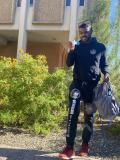
April 10th, 2024 |Antonio Bandoo, 4th year Phd. candidate, Microbiology, Biodesign Institute Center for Fundamental and Applied Microbiomics, ASU School of Life Sciences, Arizona, US (he/him)
Talk | "Two novel geminiviruses identified from bees (Apis mellifera and Nomia sp.)"
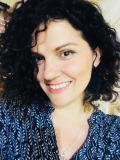
March 13th, 2024 |Paula Istvan, Centre for Bioinformatics, University of Oslo, Norway
Talk | "Gut Phages – Guardians of Gut-laxy"
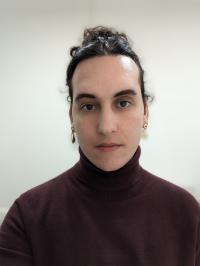
February 14th, 2024 | JL Weissman, Department of Biology, The City College of New York, New York, NY, US
Talk | "What Microbes Do When They Get Sick: Eco-Evolutionary Drivers of Antiviral Defense Strategy"
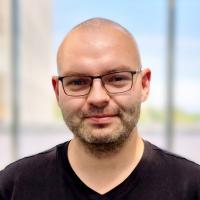
December 13th, 2023 |Luke Hillary, University of California, Davis, US
Talk: "Into the wild and digital: Virus hunting beyond the traditional”
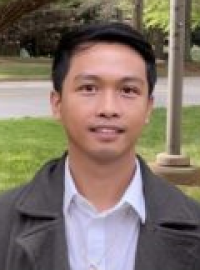
November 8th, 2023 |Mark Paul Selda Rivarez, North Carolina State University, USA / Caraga State University, Philippines
Talk: "Into the wild and digital: Virus hunting beyond the traditional”
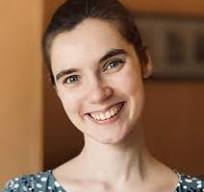
September 13th, 2023 | Sofia Medvedeva, Institut Pasteur, France
Talk: "A global virome of methanogenic archaea highlights novel diversity and adaptations to the gut environment”
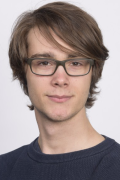
July 12th, 2023 | Tom van der Most, Radboud University Medical Center, Netherlands
Talk: "Characterizing the virome of Culex mosquitoes”
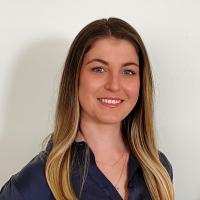
June 14th, 2023 | Erin Harvey, The University of Sydney, Australia
Talk: “The utility of phylogeny in virus discovery: Host association, taxonomy and disease potential”
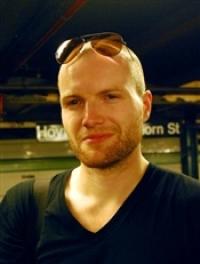
May 10th, 2023 10am EST - Jeroen Meijer,
Utrecht University, Netherlands - “Eco-evolutionary dynamics of massive, parallel bacteriophage outbreaks in compost communities”
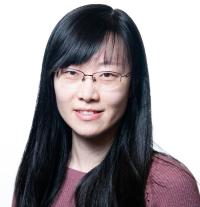
April 5th, 2023 | - Dr. Ruonan Wu, Pacific Northwest National Laboratory, USA
“Unearthing Climate Impacts on Soil Viruses”
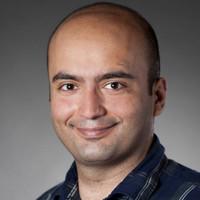
March 8th, 2023 | Dr. Mohammadali Khan Mirzaei, Institute of Virology, Technical University of Munich, Germany
Talk: "Interrogating the virome-microbiome interactions to mitigate dysbiosis-associated diseases"
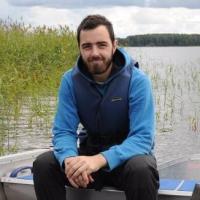
January 11th, 2023 | Cormac M. Kinsella, Amsterdam UMC, The Netherlands
Talk: "Computational host discovery for stray viruses in the metagenomic age”
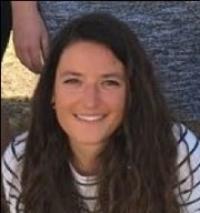
December 14, 2022 | Justine Charon, Sydney, Australia
Talk: “Investigating the protist virosphere: the current limits and how we can face them?”
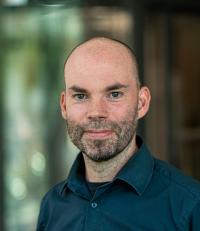
November 9th, 2022 | René Kallies, Leibniz, Germany
Talk: “Introduction to MuDoGeR”
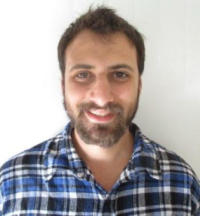
October 12, 2022 | Uri Neri, Moshav Yarkona, Israel
Talk: “RNA viruses in metatranscriptions – dawn of a new age?”
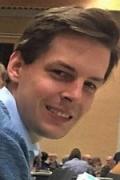
September 14, 2022 |Daan Jansen, KU Leuven, Belgium
Talk: “Community typing as a way to explore virome compositional changes in IBD patients”
Elaine Luo
Postdoctoral Scholar
Woods Hole Oceanographic Institution
August 10, 2022
Topic: “Viral diversity in the ocean”
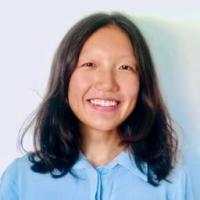
Janina Rahlff
Linneaus University, Sweden
July 13, 2022
Topic: “Dwelling in the ocean’s skin: lessons learned from studying viruses at the air-sea boundary”
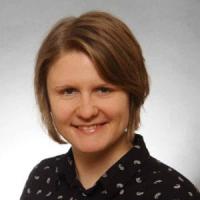
Janina Rahlff is a marine microbiologist and postdoc in Karin Holmfeldt’s lab at the Linnaeus University in Kalmar, Sweden, where she currently investigates phages and virus-host interactions in the 1 mm thin layer between ocean and atmosphere.
Janina received her PhD from the Carl von Ossietzky University of Oldenburg in Germany, where she explored bacteria in the sea-surface microlayer and before she started her first postdoc at the University of Duisburg-Essen and gained interest in viral metagenomics and the virioneuston (viruses in the microlayer).
Ahmed Zayed
Ph. D., Research scientist
Sullivan Lab at the Ohio State University
June 8, 2022
Topic: “Ecology and evolutionary origins of the Global Ocean RNA virome”
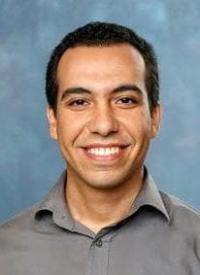
Dr. Zayed’s research spans environmental, medical, and pharmaceutical microbiology, and aims at understanding the interactions happening between microbes and their environments across different ecosystems.
Employing cutting-edge bioinformatic and high-throughput tools, his research led to the discovery of hundreds of thousands of DNA/RNA viral sequences and thousands of microbes in the global ocean, human/animal bodies, and carbon-rich soils.
He finished his Ph.D. in Microbiology in 2019 from the Ohio State University, where he is currently conducting his research on the ecology and evolution of RNA viruses.
Dr. Zayed is also part of the leadership team of the EMERGE Biology Integration Institute which aims at understanding microbial acclimation, assembly, and adaptation processes in complex, dynamic ecosystems.
Special edition: 5th International Viromics Workshop
- Duration:~2 hours of talks
- Location: Live from the mini-symposium segment; the Ohio State University.
- May 11, 2022
- Mini-symposium content: (available to watch on our YouTube channel)
Simon Roux
Joint Genome Institute (JGI)
Topic: Viromics overview
Ahmed Zayed
The Ohio State University (tOSU)
Topic: Oceans overview
Joanne Emerson
University of California, Davis (UC Davis)
Topic: Soils overview
Arvind Varsani
Arizona State University (ASU)
Topic: Host-associated overview (plants, insects, animals)
Rotem Sorek
Ph. D.
Weizmann Institute of Science, Israel
April 3, 2022
Topic: “The immune system of bacteria: Beyond CRISPR”
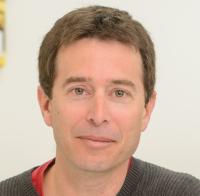
Rotem’s lab webpage: https://www.weizmann.ac.il/molgen/Sorek/
Florian Pfaff
Ph.D., Laboratory Head
Friedrich-Loeffler-Institute, Germany
March 9, 2022
Topic: “Virus discovery now and then – from Koch’s postulate to browsing viruses in the internet”
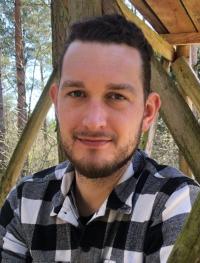
Florian Pfaff is a bioinformatician heading the Laboratory for Applied Bioinformatics and Sequencing of Viral Genomes and Transcriptomes at the Friedrich Loeffler Institute in Germany.
Florian studied Biotechnology in Jena and Bremerhaven where he already studied the genome and the phylogeny of viruses.
He was working on different projects at the Helmholtz Centre for Polar and Marine Research and the Max-Planck-Institute for Chemical Ecology about evolutionary ecology including a scientific expedition with the Argentine research vessel ’ARA Puerto Deseado’.
Florian received his PhD on “Expanding the virosphere – Advanced genomic classification” at the FLI.
Ann Gregory
Ph.D., Postdoc
Sullivan Lab at Ohio State University
February 9, 2022
Topic: “Growing opportunities for studying microdiversity in viral ecology”
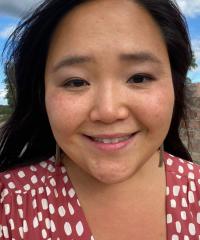
Ann Gregory is a viral ecologist and population geneticist interested in understanding the role of viruses in human gut microbiome dynamics.
Ann received her PhD in Matt Sullivan’s lab at Ohio State University where she studied viruses in the global oceans and human gut.
Ann received the EMBO fellowship for a postdoc position in Belgium at KU Leuven under the mentorship of Jeroen Raes, where she shifted gears to focus on bacterial metabolisms in the human gut.
After completing her fellowship, Ann moved back to the US to be closer to family and recently re-joined the Sullivan lab for another postdoc to re-focus on viruses.
